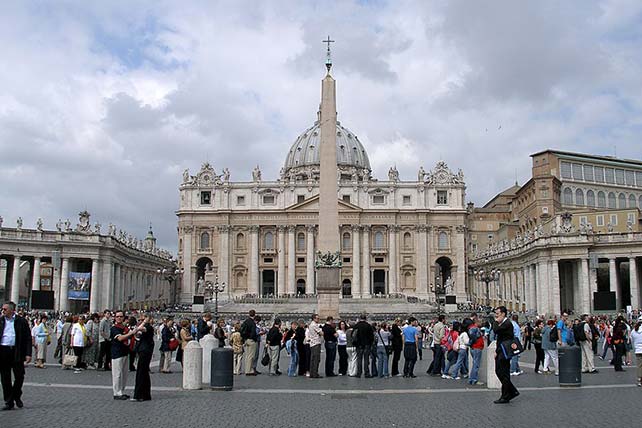VATICAN CITY (RNS) — Recent reports on the clerical sexual abuse scandals in France and Germany have put the spotlight once again on the Catholic Church in Italy, which has so far avoided confronting the history of abusive priests in the country.
Advocates for victims in Italy believe it’s time for the local church to allow a thorough investigation into claims of sexual abuse by priests but lament a “conspiracy of silence” between the Catholic institution and the Italian state.
“Italy has a big problem,” said Francesco Zanardi, founder of Rete L’Abuso, Italy’s largest network for victims of clergy abuse, in an interview with Religion News Service on Monday (Feb. 21).
In Italy “the dynamic of stopping sexual abuse is entirely in the hands of the church,” he said, adding that “the state doesn’t interfere.”
Zanardi, a clerical abuse survivor himself, has accompanied more than 1,200 victims of clergy abuse through the maze of legal and canonical procedures.
Rete L’Abuso, founded in 2010, cooperates with many other similar associations globally to promote accountability in the Catholic Church. A carefully updated and interactive map on its website monitors the movements of abusive priests, the safety of dioceses and the legal procedures currently underway.
Zanardi said he does the hard work of keeping tabs on abuser priests because no one else, church or state, has made an effort so far.
RELATED: Report on Sexual Abuse in German Diocese Faults Retired Pope
From Spain to France, Ireland and Australia, local governments have doubled down on the Catholic Church to launch independent inquiries into clerical abuse cases. But the Italian government has yet to do so.
Zanardi believes there exists “a tacit agreement” between the Italian church and state, but he is not optimistic in finding actual proof of this supposed conspiracy. Evidence of this incestuous relationship are to be found, according to Zanardi, in how priests are treated once they are found guilty of abuse.
“Priests don’t go to prison,” he said; instead, they are sent to locations throughout Italy where they can live out their sentence in spiritual penance. For Zanardi, these places are “an escamotage,” a trick with the intent of “guaranteeing a pact between the state and the church not unlike the one that existed between the state and the mafia.”
A concordat signed between the Holy See and the Italian state in 1984 is widely interpreted as allowing bishops and even priests to not testify in a penal trial due to the secrecy of their ministry. The treaty is partly responsible for why Italian magistrates are hesitant when taking on a clerical abuse case, Zanardi said.
For Mario Caligiuri, who heads the legal team of Rete L’Abuso, the concordat is only part of the problem. Over the phone with RNS, he said Italian culture makes it difficult for clerical abuse cases to come to light.
In Catholic-majority Italy, “there is a reality where the church has a strong influence,” he said. The statute of limitations, the lack of adequate compensation for victims of abuse and the extraordinary length of penal trials — which can sometimes last decades — have contributed to making the pursuit of justice by victims of clergy abuse in Italy extremely difficult, Caligiuri said.

